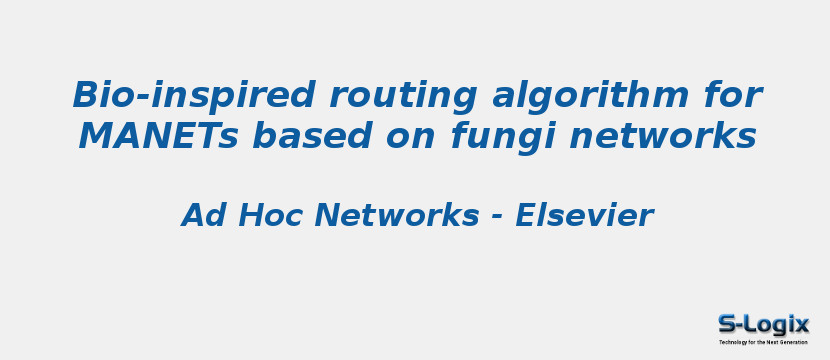Research Area: Mobile Ad Hoc Networks
The major trends today show that mobile ad hoc networks (MANETs) are increasingly taking up space in the domestic and corporate market with the growth of numbers of users and new applications. Just as various systems were inspired by the behavior of social insects (ants, bees, among others), fungal colonies also demonstrate potential for bio-inspiration of new protocols for MANETs because they exhibit behavior and capacity for self-organization of adaptive, resilient and efficient natural networks in transporting nutrients. In this work, HyphaNet proposes a new bio-inspired approach in the fungi dynamics to develop an algorithm for the creation, optimization and selection of routes for MANETs. In HyphaNet, the routes are built similarly to the fungal mycelium, in which several parallel paths are initially established, but over time, only the hyphae of the best routes receive biomass for reinforcement and thickening of their walls, thus remaining and presenting greater flow attractiveness. Otherwise, less interesting routes remain rare or disappear completely. In this new algorithm, the routing process follows the idea of attractiveness, in which the data flow tends to travel through regions (nodes and links) with a higher concentration of immobile biomass, which indicates lower cost and greater availability of resources. In this model, the routes are reinforced with each data package delivered successfully and the distribution of immobile biomass is a function of the quality of the path between source and destination. The most attractive paths are more likely to be chosen by the route selection heuristic. HyphaNet is reactive, multipath, and the results of the simulations on the NS-2 show good performance compared to the classic AODV and SARA based on ant colony.
Keywords:
Author(s) Name: Clovis Ronaldo da Costa Bento,Emilio Carlos Gomes Wille
Journal name: Ad Hoc Networks
Conferrence name:
Publisher name: Elsevier B.V.
DOI: 10.1016/j.adhoc.2020.102248
Volume Information: Volume 107, 1 October 2020, 102248
